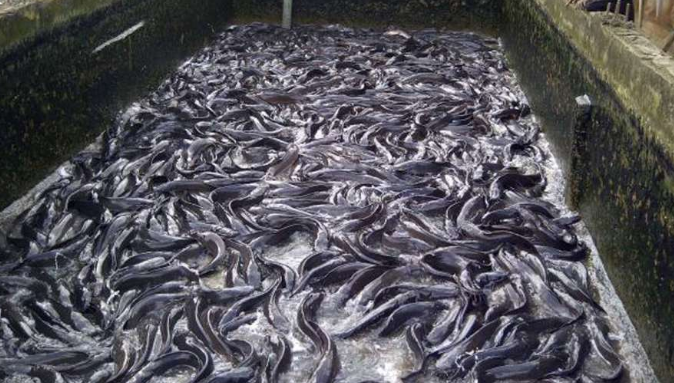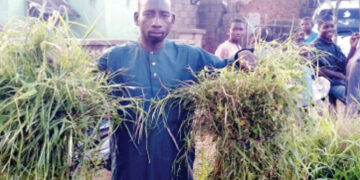Fish barbecue businesses in Lokoja, Kogi State, are facing tough times due to escalating transportation costs and ongoing economic challenges. These factors have significantly reduced consumer spending, leading to low patronage and a sharp decline in sales for many vendors.IBRAHIM OBANSA writes.
Fish barbecue vendors, popularly known as “Point and Kill,” in Lokoja, Kogi State, are grappling with a sharp decline in their businesses. They attribute the downturn to a combination of soaring transportation costs, economic hardship, and cash flow difficulties.
LEADERSHIP Weekend checks in the city revealed that the once-thriving trade is now facing its toughest times, as the purchasing power of residents continues to shrink, resulting in low patronage and dwindling sales.
A middle-aged woman, Laruba Esla, who runs the Esla Point and Kill business at the premisesof the Nigeria Union of Journalists in Lokoja, shared with our correspondent that her once-thriving business has faced setbacks since the increase in fuel pump prices.
She explained that the hike has significantly impacted her customers’ purchasing power. Additionally, with her supplies coming from outside the state, the rising transportation costs have driven up the price of fish, limiting the number of baskets she can purchase.
“The hike in price of fuel has affected our business. Our fish comes from places like Ibadan, Ekiti and Abuja. Cost of the fish has also increased because of the high transport cost. We can no longer buy the number of baskets we use to buy.
Speaking further, she said, “I used to buy between 6 to 8 baskets of fish daily, and would sell them all in one day. But now, I can’t buy more than two baskets, and sometimes, I can’t even sell them all because people just don’t have the money to buy.”
She also highlighted the steep rise in fish prices, saying, “Fish that we used to sell for between N2,000 and N3,000 is now priced between N6,000 and N8,000. How can people afford that? This is seriously affecting our business, and I’m calling on the government to assist us.”
Another vendor, Emma Fish Point, also shared his experience, stating, “I’m no longer selling like I used to. In the past, people would queue up for my fish, but now, my sales have drastically declined.”
In his case, he gets his supply from the river bank, but however said the people have also increased their prices due to the cost of other itens in the market, adding that the cheapest fish on his stand is now between N6,000 to N8,000 thousand Naira as against the N2,500 to N3,00O previously.
Another well-known fish barbecue seller on Lugard Road in Lokoja, Ajomo Blessings Oshiname (also known as Blessing White), also expressed concerns over declining sales, attributing the issue to the high cost of fish.
“I can barely sell one basket these days. The cost of fish has risen sharply due to high transportation expenses. If the government can reduce fuel prices, the cost of fish will drop, and we’ll be able to make it more affordable for the people,” she said.
When asked about her previous sales, she shared, “I used to sell between three to four baskets a day. But now, as you can see, there are no customers. I’m operating at a loss. Sometimes, the fish remains unsold, and due to poor storage facilities and erratic power supply, the fish spoils. I’m calling on the government to help us.”
The situation is similar at other fish points visited across Lokoja metropolis, with all vendors urging both the state and federal governments to come to their aid. They fear that without support, they may be forced out of the market, which would have a devastating impact on their families and livelihoods. The ongoing challenges they face threaten not only their businesses but also their ability to provide for their loved ones, making urgent government intervention crucial to prevent further hardship.





